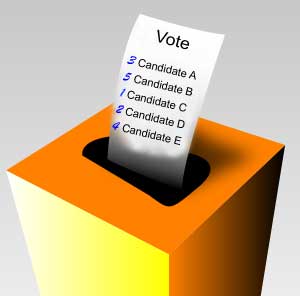 People vote for a candidate for one or many possible reasons. One very large set of issues are those that deal with social issues or moral issues. Things like abortion, gambling, gay marriage and work ethic issues define many American voters. For many years, politicos have been telling us that these issues are unimportant to many and downright offensive to others. In the aftermath of last week’s election those who seek an amoral approach to politics are even louder and point to our belief in certain foundational social issues as one major reason that a conservative candidate was not elected. One commentator was bold enough to say that it was time to leave abortion behind. Are they right? Should we become silent and even indifferent to moral issues? Of course not.
People vote for a candidate for one or many possible reasons. One very large set of issues are those that deal with social issues or moral issues. Things like abortion, gambling, gay marriage and work ethic issues define many American voters. For many years, politicos have been telling us that these issues are unimportant to many and downright offensive to others. In the aftermath of last week’s election those who seek an amoral approach to politics are even louder and point to our belief in certain foundational social issues as one major reason that a conservative candidate was not elected. One commentator was bold enough to say that it was time to leave abortion behind. Are they right? Should we become silent and even indifferent to moral issues? Of course not.
Moral Issues Are God’s Issues
Our support of moral issues is predicated on Biblical teaching. We support what God has taught and dare not support what he condemns. Paul says God has spoken to us through his Spirit and that the Spirit has searched and knows “the depths of God” (1 Corinthians 2:6-13). It is this same Spirit that guides men into truth (John 16:13) and moved holy men to compose the books of the Bible we have today (2 Peter 1:21). We can no more jettison clear Bible teaching than we can reject the sonship of Jesus Christ.
Moral Issues Are “Salt” Issues
Jesus expects his people to be men and women of influence. He uses common salt as an example of the Christian in Matthew 5:13. The idea is unmistakable. Christians must come into contact with the world so that we can influence the world. Peter, James and John could not live upon the Transfiguration Mountain; the apostles could not remain in the upper room after the crucifixion. The work was among men. Likewise, our work is among the people of our day. We must add influence where we can.
Moral Issues Elevate a People
When a nation pursues God and seeks righteousness and goodness, that nation is blessed. Solomon said, “Righteousness exalts a nation, but sin is a reproach to any people.” The founders of this nation understood that principle and sought divine blessings. Only succeeding, corrupt, generations have twisted their desires and intents to exclude righteousness from the public square. God blesses those who draw near to him (James 4:8) while opposing those who do not (Psalm 34:16).
Moral Issues Are Not Decided by the Majority
In Genesis 6, Noah did not take a poll before beginning the ark. Joshua did not seek military advice before encircling Jericho (Joshua 6). As Noah’s story makes clear, the majority is a horrible indicator of righteousness. The Lord himself tells us that most will be lost (Matthew 7:13). Pollsters and politicos would have use determine the important issues based upon focus groups and polling data. Sadly, some religious groups today survey their communities to decide what to preach on. Opinion driven preaching is driving millions into Satan’s arms every day. We must stand for truth even if we are the last man standing.
Christians must stand for goodness and influence others for righteousness whenever and wherever they can. We cannot be deluded into thinking that political victories are important enough to ignore what God has said. Let us stand until the Lord calls us home.



1 comments On Should We Change?
You nailed that one.
Comments are closed.